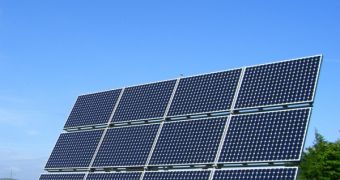Obama's new security advisor, James Jones, who was appointed on Monday, already announced that he plans to introduce drastic changes in the way the United States perceive their energy dependency, saying that renewable energy offers enormous opportunities the federal government must take advantage as soon as possible. He said that continued imports of oil from the Middle East and Canada, while they will still go on for a while, are just transitory steps to the new American energy security policy.
"What is needed instead is a more strategic and comprehensive approach to address the broad underlying trends in energy markets--some long standing, some only recently emerging--that are and will remain significant challenges unless we muster the will to adopt a sound enduring energy policy,” read a memo that a US Chamber of Commerce affiliate, the Institute for 21st Century Energy, which Jones ruled as CEO, addressed to president-elect Barack Obama.
The paper argues that “A sluggish economy teetering on, if not in, a recession and the recent crisis in the financial markets makes tackling these challenges all the more pressing, not less so, because at its most fundamental level, energy security is a critical underpinning of a healthy economy".
Among the key areas of fighting global warming that Jones wants to focus his efforts on, he names increased support for clean technologies, including energy efficiency and renewable energy, as well more funding for climate studies, which, he adds, could prevent catastrophes from damaging the American economy.
Obama voiced his support of green energy initiatives during the entire course of his campaign. In fact, he made the topic one of its strong points, and promised to environmental groups that he would pass on legislation meant to reduce the levels of US carbon emissions to their 1990 levels by 2020, and a further 80 percent by 2050.
Unfortunately, some experts argue that, although good intentions exist, the current economic crisis could make it impossible for the federal government to afford massive investments, in the excess of $150 billion in ten years, in key sectors of sustainable development.

 14 DAY TRIAL //
14 DAY TRIAL //